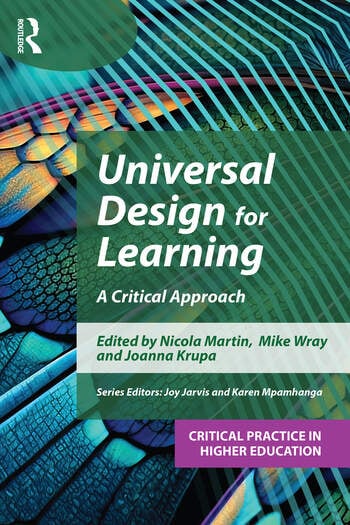
Building Future Communities Research Centre
Nothing About Us Without Us

LSBU has been ranked third in the world for reducing inequalities in the Times Higher Impact Rankings 2024. As a contributing factor, the Building Future Communities (BFC) Research Centre is a creative umbrella designed to add value to various inclusive participatory research projects prioritizing this agenda through stakeholder engagement and collaboration.
Our ethos is inclusive, and we work collectively focusing an intersectional lens on social justice concerns and research for transformation and real-world impact. We engage with funded research, enterprise activity, consultancy and researcher development with organisations including charities, organisations, community groups and local authorities.
Based on the principle ‘nothing about us without us,’ BFC builds on the creative participatory work of the former Social Justice and Global Responsibility Research Centre. We're committed in to particular to encouraging researchers who do not have easy access to research support, including for example young, disabled, minoritised, digitally/linguistically excluded people, and colleagues who work in further education or professional services roles.
LSBU Researchers (in alphabetical order)
Below is a dynamic list of LSBU researchers working on relevant projects. We also partner with external collaborators and work with a growing community of early career researchers and postgraduate research students. The list will be updated regularly.
Alison Alvarez Nee
Professor Caitríona Beaumont
Research Interests: History of female activism; female networks and women’s social movements in Ireland and Britain across the nineteenth and twentieth century.
Dr Nicole Brown
Research interests: Representations of experiences, the generation of knowledge, and research methods and approaches to explore these ideas.
Dr Jessie Bustillos
Research interests: Youth identities and post-school transitions; intersections of inequalities in education.
Professor Eddie Chaplin
Research interests: People with intellectual disability, autism and ADHD in the Criminal Justice System; mental health training and peer mentoring via coproduction with people with intellectual disability and autism.
Dr Charlotte Clements
Research Interests: Informal education, inclusive education, history and policy of welfare and education, professional identities of youth workers.
Dr Clara Eroukhmanoff
Research interests: Gender and foreign policy; feminist foreign policy; the politics of the war on terrorism.
Catherine Evans
Research interests: Law in a social and community activism context focussing on the Windrush scandal; transitional justice; and the Columbian peace accord.
Anam Farooq
Dr Cameron Giles
Research interests: Law in a social and historic context; law and digital technology, often focusing on offences connected to sex and sexuality.
Lyn Hamblin
Dr Elisavet Hasa
Research interests: Design for wellbeing and inclusion; spatial justice; feminist ethics of care; mutual aid and community support infrastructures; architecture’s role in community resilience; participatory design and community engagement; the climate emergency; urban transformation; adaptability crises; social movements and the politics of institutionalisation.
Dr Charalampia Karagianni
Research interests: Teacher education, inclusive education in the further education and skills sector, intercultural education, gender studies.
Pallavi Kaul
Research interests: Trans and non-binary lived experiences; gender euphoria and the body in trans and NB adults; enabling more holistic care, including mental health care, for trans people.
Professor Alex Kendall
Research interests: Learning identities and lived experiences of learning (in and out of formal settings), practitioner education (UK and internationally), cultures of sanctuary, creative, participatory and arts-based methodologies and pedagogies.
Dr Catherine Kimber
Research interests: Tobacco, nicotine and vaping research; smoking cessation intervention; public health communication around the relative risk of vaping; pharmacokinetic studies on nicotine vapes.
Joanna Krupa
Research interests: Inclusive education; neurodiversity; parent-school partnerships.
Dr Karla Lopez
Research Interests: Student outcomes, experiences and student voice related to widening participation and intersections with gender, race, identities, and migration; ethical practices; international student mobility.
Professor Nicola Martin
Research interests: Inclusive education and critical disability studies.
Gabbie Matei
Peter Nimmo
Andy Owusu
Research interests: Black student mental health; minoritised students and researchers.
Pippa Palmer
Research interests: Systems change; sector building; programme design; knowledge exchange; participatory research and co-creation; housing; retrofit; net zero transitions; institutional challenges; boarding school survivors.
Dr Preethi Premkumar
Research interests: Ffamily relationships; mental health; social exclusion; virtual-reality psychosocial intervention; disability and race; career progress of minoritised researchers.
Dr Alex Prior
Research interests: Political engagement and democratic participation; Parliaments and political institutions; and Narratives, storytelling, and deliberation.
Dr Harry Radzuan
Research interests: Energy generation and utilisation; energy poverty; transportation; sustainability; climate change adaptation and mitigation; net zero transition, and SMEs' involvement in achieving SDGs.
Nate Rae
Research interests: Community engagement and support among young (15-24) trans and gender nonconforming people; looking at counterspaces (non-school, home or workplace settings where young people can foster resilience and coping strategies) and their role in sense of community and mental wellbeing.
Dr Federica Rossi
Research interests: Criminalisation of activism and dissent; imprisonment and penal policies; politically motivated crimes; state harm and violence.
Annie Ruddlesden
Dr Martha Shaw
Research interests: Religion and worldviews in education; and education for intercultural citizenship.
Alice Speller
Research interests: Disabled students; inclusive practice and UDL; disability inclusion in HE and FE.
Sharron Sturgess
Research interests: Disability, autism/neurodiversity, educational inclusion, wellbeing and belonging for students in HE, access to space and place by HE students, emancipatory and participatory research.
Dr Rory Summerley
Research interests: Accessibility for interactive technology and entertainment.
Charlotte Taylor-Page
Research interests: Interrogating/ exploring the use and effects of lived experience-based education in clinical psychology training, particularly experience of psychological distress and/or mental health service use.
Dr Allan Tyler
Research interests: LGBTQ+ mental health, LGBTQ+ youth and safeguarding, mental health, sex work, homelessness, nicotine harm reduction, e-cigarettes, smoking cessation.
Mira Kokoe Wille
Black students' experiences at post-1992 universities; antiblackness, socioeconomic class and classism; transition to and within HE; neoliberalism.
Research Strands
BFC colleagues are social scientists accustomed to working on interdisciplinary projects. Our research links to five main strands, to enable the development of communities of practice around common interests. Postgraduate research students are among the strand leads.
Critical Autism and Disability Studies (CADS) (lead: Joanna Krupa) CADS provides opportunities for networking and researcher development through informal monthly virtual get-togethers, and via various conferences, seminars etc. The forum is open to anyone who shares a common interest in intersectional and social model thinking around autism, neurodiversity and disability. Please contact Jo Krupa on krupaj2@lsbu.ac.uk if you would like to join the forum. CADS relies on winning external funding in order to engage in research and operates on the very firm principle that autistic, neurodivergent and disabled researchers must be at the heart of our research projects as properly employed, paid and supported researchers. This principle also applies to any consultancy or professional development delivered by CADS. Our research is participatory, inclusive, creative and mainly qualitative. CADS aspires to emancipatory research but cannot claim that this ambition has been fully realised to date. |
Disabled Student Commitment/Universal Design for Learning (lead: Alice Speller) |
Marginalised Researcher/Student Experience (lead: Andy Owusu) |
Thriving Homes: (lead: Pippa Palmer) |
Lived Citizenship Strand (co-leads: Martha Shaw and Caitríona Beaumont) The idea of Lived Citizenship has emerged as a key concept in citizenship studies over the last two decades. Lived Citizenship can be defined as ‘generative approach to recognise the embodied, relational and lived experiences of being a citizen in everyday life’ (Kallio, Wood & Hakli, 2020, p. 1). The notion of lived experience in this context can be understood as ‘a representation of understanding of human experiences, choices, and options and the way those factors influence perceptions of knowledge’ (Boylorn, 2008, p. 490). The Lived Citizenship strand seeks to bring together colleagues across disciplines at LSBU and beyond who are interested in applying the concept of Lived Citizenship to their work in innovative and inter-disciplinary ways. The possibilities for extending understandings around everyday experiences of citizenship in the fields of education, criminal justice, law, health care, disability studies, civic engagement and political activism is timely and exciting. The strand’s approach draws on the work of scholars such as Raymond Willams and EP Thompson who in the 1950s identified personal experience as the foundation for political activism, and of Joan Scott who observed that experience is always contested and therefore always political (Beaumont, Colpus & Davidson, 2025, p. 12). As a result, the Lived Citizenship strand intends to interrogate further how harnessing the potential of lived experience to shape Lived Citizenship can prove transformative in building stronger community engagement and activism. The strand adopts a participatory, creative and intersectional framework to underpin its work, building on the work of Katrina Navickas to highlight the links ‘between personal experience and social relationships with class identities shaped by lived experience intersected by other forces and groupings, including race, gender, faith and nation’ (Navickas, 2018, p. 95). We are also interested in forms of action and activism, used by individuals and groups, who undertake work/actions in relation to community engagement/civic identities and illuminate diverse ways of how ‘to do’ citizenship that that connects personal experiences to policy and politics. The Lived Citizenship strand will enable exciting new connections with colleagues in health and social care at LSBU who lead on collaborative work with The People’s Academy (PA) and The Foundation for People with Learning Disabilities (FPLD). |
We work closely with LSBU’s Doctoral Academy and actively support researcher development.
The centre is currently working on projects around access to healthcare, community, culture, social care, education, and employment. We seek to engage in creative ways to enable real participation, particularly of the seldom heard voices of citizens who may experience marginalisation. We prioritise inclusive researcher development, peer support, and seek to build informal, inclusive, and supportive networks which meet regularly to share ideas and progress research and enterprise projects which fit with BFC’s ethos.
All the initiatives BFC is involved with include stakeholder researchers who are properly paid and properly supported in their research roles. We are building on our research and enterprise activity around themes of social justice, social transformation, and inclusive practice. Alongside this, in collaboration with LSBU’s Doctoral College, we are building a programme of inclusive researcher development activities prioritising creative approaches to co-production and co-creation. A conference focussing on this agenda is currently under development.
Recent research grants and enterprise awards
| Research | Funder |
|---|---|
| Brown, N., Martin, N. & Premkumar, P. (2024). "Not as simple as right or wrong": A themed report on social care and support for disabled people in the UK. Report for the Disability Unit, Equality Hub, Cabinet’s Office. | Cabinet Office |
| Tender to edit a book for the NADP based on the Disabled Student Commitment. | National Association of Disability Practitioners |
| Research on the impact of the COVID pandemic on the career progression of researchers with Equality Act protected characteristics. | UKRI |
| Rees-Roberts, D., Premkumar, P. (2024). Depict VR - A virtual reality intervention to help young people who hear voices. | Innovate UK |
| Premkumar, P., Rees-Roberts, D. (2024). Depict VR: a multi-sensory multi-user proof-of-concept VR application to address voice-hearing in young people | British Academy |
| Progression to residential care of older autistic adults. | NHS England |
| Identifying, understanding, and improving practical and social support and wellbeing for autistic adults with intellectual impairment over the age of 45 years and their family carers. | John and Lorna Wing Foundation |
| Universal Healthcare, a national inquiry setting out our investigation into how the NHS can address the challenges of Universal Healthcare by how it designs and provides services based on health needs. | NHS Sussex and NHS West Yorkshire |
| Chown, N. et al (2023). General Practitioner Autism Training and Mandatory Medical Training: A Cross-Sectional Study of GPs’ Knowledge, Attitudes and Practices. Canadian Journal of Educational and Social Studies. 3 (1), pp. 1-16 | NHS England |
| Premkumar, P., Takhar, S., Martin, N. (2023). Disability, Loneliness and Relationships: A thematic report on relationships with family and friends among disabled people in the UK | Cabinet Office Disability Unit |
| Doherty et al (2024) (Doctoral Student): An Interpretive Phenomenological Analysis of the Experiences of Autistic Psychiatrists: “If We Can't Recognize Ourselves, How Can We Diagnose Autistic Patients Accurately?” INSAR Conference Poster. | |
| The Black Students Mental Health Project collaborated closely with Black students to gain insight into their perspectives on education, health, and overall well-being, including the challenges they faced in accessing support. | Office for Students and London South Bank University |
| Understanding the Interplay: Education, lived worldviews & citizenship. This project works with Secondary schools in England to explore young people’s conception of citizenship and the relationships between identity, belonging and religion/worldview. | Culham St Gabriel’s Trust |
| Agency and Advocacy: Locating Women's Grassroots Activism in England and Ireland, 1918 to the present (AH/X008606/1). | AHRC |
Get involved/work with us
BFC’s commitment to working collaboratively is genuine. We tend to develop interdisciplinary networks around themes which hold regular informal meetings via MS Teams to develop ideas and progress projects. Researcher development, peer support and joined up thinking are some of the benefits of working in this way. Established networks include the Inclusive Teaching and Learning Group and the Critical Autism and Disability Studies Research Forum. Currently for example we are working on a range of student experience projects focussing on Universal Design for Learning.
Having an established infrastructure enables us to collaborate remotely with partners all over the world. We also have the advantage of LSBU’s optimal location near Waterloo station in London which includes accessible conference facilities, gallery, and theatre space. In addition, we have excellent capabilities for delivering research-informed consultancy and CPD remotely all over the world.
Our expertise in inclusive and creative approaches to research and researcher development enables us to work effectively with local and global community partners. We would like to hear from you if you have an idea about a project to which BFC could add value. Informal conversations are fine as a starting point.
Please get in touch: martinn4@lsbu.ac.uk
Our Partnerships
Groups which work closely with the BFC Research Centre include:
BFC has established relationships with funders (including The Cabinet Office, British Academy and NHS England) and organisations (including local authorities, charities, SME’s, employers, and citizen groups).
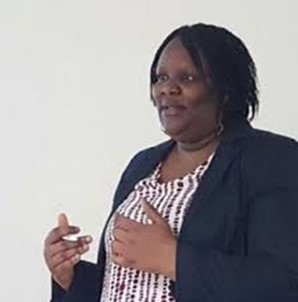
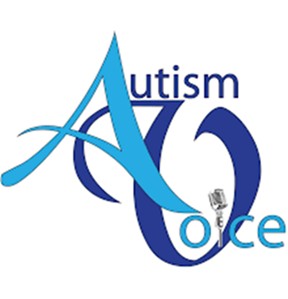
Working equitably with interdisciplinary collaborators we add value to research, enterprise and researcher development initiatives and have very close links across LSBU and with relevant organisations including The Foundation for People with Learning Disabilities, Theatre in Prison and Probation, The Claudia Jones Organisation, The Southwark Day Centre for Asylum Seekers, London Youth, Partnership for Young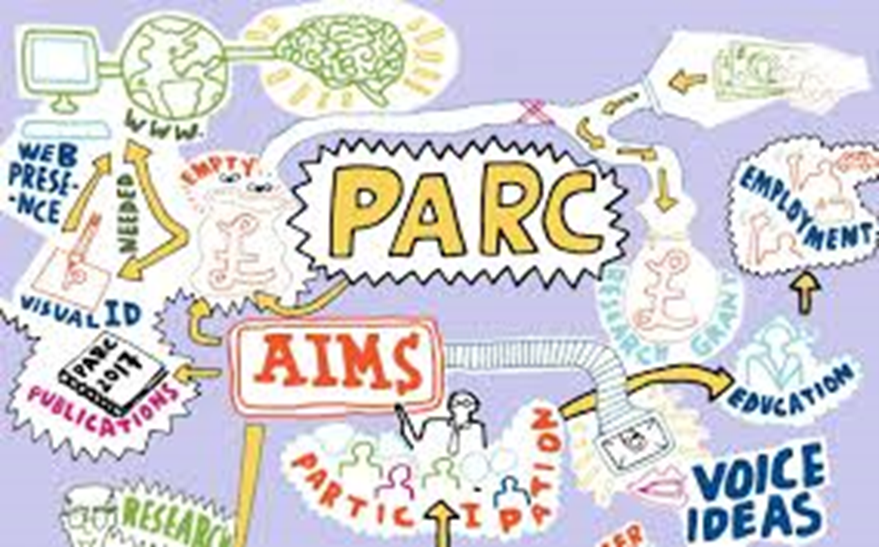 London, Diversity and Ability, The Windrush Clinic, Jigsaw House, The National Association of Disability Practitioners, The National Association of Disabled Staff Networks, The Westminster Autism Commission, The Participatory Autism Research Collective (PARC), Autism Voice, Autistic Doctors International, London Higher and LSBU’s Peoples Academy and Doctoral College.
London, Diversity and Ability, The Windrush Clinic, Jigsaw House, The National Association of Disability Practitioners, The National Association of Disabled Staff Networks, The Westminster Autism Commission, The Participatory Autism Research Collective (PARC), Autism Voice, Autistic Doctors International, London Higher and LSBU’s Peoples Academy and Doctoral College.
We work closely with LSBU’s Doctoral College. Students associated with BFC are supported in qualitative research which considers, for example, aspects of student experience across the age range from early years into adulthood, universal design, mental health concerns, neurodivergence, parenting and criminal justice, community education, inclusive pedagogies.
BFC collaborates with LSBU’s Legal and Social  Policy Clinic, where undergraduate students gain real-world experience researching and responding to policy consultations. The Legal and Social Policy Clinic builds upon LSBU’s success supporting the local community through its student-run Legal Advice Centre.
Policy Clinic, where undergraduate students gain real-world experience researching and responding to policy consultations. The Legal and Social Policy Clinic builds upon LSBU’s success supporting the local community through its student-run Legal Advice Centre.
News
| Beautiful Lives by Stephen Unwin Book Launch 4 July 2025, 6-8pm |
|---|
Join us for an evening of discussion, reflection and celebration to mark the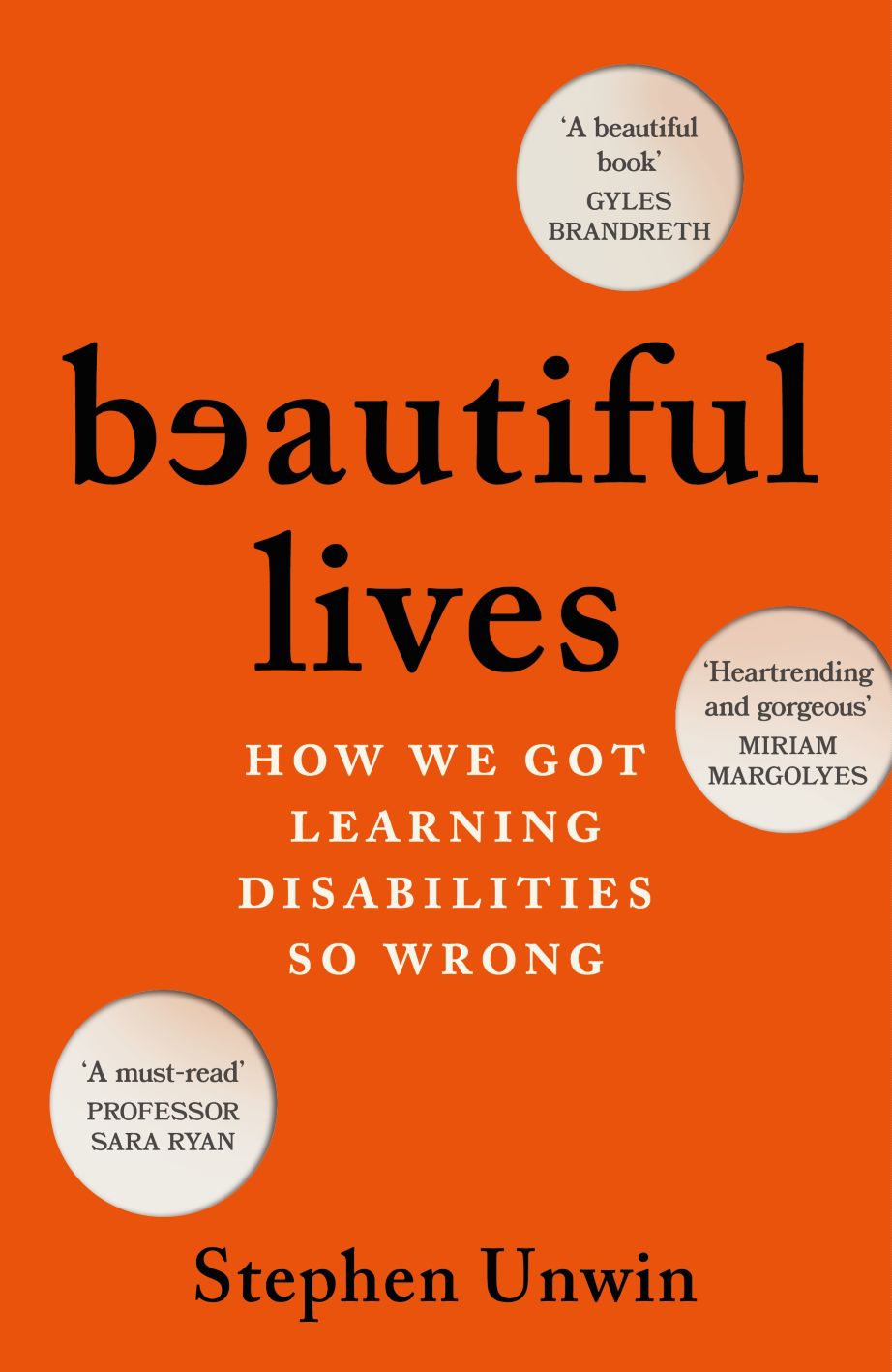 publication of Beautiful Lives by Stephen Unwin, BFC's Writer in Residence. Beautiful Lives is a personal and pragmatic account, rich with history, culture and philosophy, told through the eyes of a father whose son has profound learning disabilities. publication of Beautiful Lives by Stephen Unwin, BFC's Writer in Residence. Beautiful Lives is a personal and pragmatic account, rich with history, culture and philosophy, told through the eyes of a father whose son has profound learning disabilities.Stephen will be in conversation with the journalist and author John Harris, whose own memoir Maybe I'm Amazed, an account of how music became a source of connection between him and his autistic son, was recently published to great acclaim. Both books will be available to buy, and the evening will end with celebratory refreshments and a chance for people to continue the conversation informally. Please book your place here |
| LSBU PhD Opportunity: Chancellor's Scholarship |
|---|
LSBU is offering a Chancellor's Scholarship in Law and Education. Chancellor's Scholarships provide fee-waiver awards, covering tuition fees only for four years. CSP2/LE/PhD Law The role of case law in driving change for disabled students in higher education The decision of the High Court in University of Bristol v Abrahart [2024] EWHC 299 raises fundamental questions about the role of assessment within Higher Education and the expectations on universities regarding their knowledge of students’ disabilities (De Sabbata and Pearson 2024). As institutions integrate post-Abrahart guidance (EHRC 2024) into institutional processes and practices, research is needed to understand how these developments sit alongside, complement or conflict with broader shifts in UK Higher Education including the changing use of technology within higher education and the acknowledgement of the uneven access this might have dependent on protected characteristics such as disability (Savanta 2024, p.3). This PhD research is intended to build upon existing expertise in law policy and education within the College of Society and Professions and the Building Future Communities research centre. It is envisaged that the project will involve empirical legal and/or educational research, which may take the form of documentary analysis, interviews, stakeholder discussions or other appropriate methods to explore the impact of Abrahart and subsequent developments, such as Meagher v University of Cambridge [2025] EWHC 30, on higher education policy. Given the potential for the impact of Abrahart to be particularly complex in relation to the development of HE provision in disciplines where competency standards deviate from standard HE norms (D’Alton-Harrison 2024), the research may focus on particular disciplines or may take a sector-wide or sub-sector-wide approach. Supervision Team: Cameron Giles, Nicola Martin, Charlotte Clements Contact: gilesc4@lsbu.ac.uk |
Events
23 May 2025 Amplifying Marginalised Voices in Research: A Virtual Showcase |
|---|
This online event showcased the work of researchers at London South Bank University who lead projects focusing on marginalised communities, including work related to race and ethnicity, gender identity, and underrepresented lived experiences. Hosted by BFC's Marginalised Research Group (MRG), this session gave attendees the opportunity to engage with powerful presentations, network with like-minded individuals, and explore how research can actively shift higher education toward inclusion and justice. |
11 April 2025 International Symposium: Complicating Experiential Expertise and Activism in Modern British History |
|---|
This event, hosted by the BFC Research Centre, LSBU’s Justice, Communities, |
1 May 2025innovATe 2025 London - Showcasing the future of Assistive Technology! |
|---|
BFC recently hosted Habitat Learn's innovATe 2025 London Roadshow. This accessible event focussed on strategies and resources to improve the disabled student experience, relevant to all students and staff working with students. Exhibition rooms and breakout rooms enabled suppliers to demonstrate software and hardware to promote inclusive practice. |
Following the innovATe Roadshow, LSBU also presented i We also celebrated the publication of |
Windrush Community ChampionsHosted by London South Bank University. |
|---|
On Thursday, 6th February 2025, during Race Equality Week, London South Bank University hosted a virtual and in-person event organised by the Windrush Justice Clinic (WJC). The meeting focused on the lived experiences of Windrush survivors, provided a platform for their voices to be heard, and discussed approaches aimed at addressing the ongoing challenges faced by this community. The Windrush Compensation Scheme was established for people to claim for losses suffered as a result of the Windrush Scandal. However, the Scheme has been criticised as slow, complex, and unnecessarily onerous by various bodies including the Home Affairs Select Committee, Human Rights Watch, Justice and most recently Age UK. A report published on 7 November 2024 on the Scheme, The Windrush Justice Clinic Policy Briefing: Time for Justice, written by Samantha Hunt and BFC's Catherine Evans, analysed governmental and non-governmental reports on the Windrush Compensation Scheme. All the evidence describes a scheme which was poorly designed from the outset and has failed to secure justice to the victims. The Windrush Justice Clinic provides free legal representation to help victims of the Scandal secure adequate compensation from the Home Office, and policy work to ensure lessons are learnt from the Scandal. The Clinic is a collaboration between Community Organisations, Law Centres and Universities. LSBU’s role in the partnership is to provide advice on compensation and lead WJC’s research working group. The event was hosted by Glenda Caesar, Windrush survivor and advocate, and heard first-hand accounts from those most affected by the Scandal, outlining their difficulties in claiming compensation without legal support and the trauma caused by dealing with the Home Office, the key perpetrator of the Scandal. Seema Malhotra MP, the Parliamentary Under Secretary of State (Minister for Migration and Citizenship) was present. The Minister listened carefully to the survivors’ testimonies and promised change. Attendees included representatives from Action for Race Equality and Black Lives Matter. |
| Newstalk (Ireland) Talking History Podcast 40 Years On: Contraceptives Legalised in Ireland |
|---|
| This episode of Newstalk (Ireland) Talking History marks the 40th anniversary of the legalisation of the sale of contraceptives in Ireland. The episode reflects on the challenges faced by women and men in navigating religious doctrine and the law versus social justice and health care in twentieth-century Ireland. Our panel features: Dr Jennifer Redmond, Associate Professor in 20th Century Irish History, Maynooth University; Dr Mary McAuliffe, historian and Director of Gender Studies at UCD, specialising in Irish women's/gender history; Prof Caitríona Beaumont, Professor of Social History at London South Bank University, and Visiting Full Professor at the School of Social Policy, Social Work and Social Justice/Gender Studies at UCD; and Prof Lindsey Earner-Byrne, Professor of Contemporary Irish History, Trinity College Dublin. You can listen to the podcast here: 40 Years on: Contraceptives Legalised in Ireland |
| Women's Grassroots Activism |
|---|
This podcast series tells stories of women’s grassroots activism across the island of Ireland and in England from 1918 to the present. These stories highlight the diverse ways that members of the Irish Countrywomen’s Association (ICA), the Soroptimists International Great Britain and Ireland (SIGBI), the National Federation of Women’s Institutes (NFWI) and the Federation of Women’s Institutes of Northern Ireland (WINI) contributed to enhancing the lives of women and girls locally, nationally and globally. The podcast series is funded by the United Kingdom Research Innovation (UKRI) Arts and Humanities Research Council (AHRC) as part of the grant awarded for Agency and Advocacy: Locating Women’s Grassroots Activism in England and Ireland, 1918 to the present (Project Reference: AH/X008606/1, August 2023 -January 2025). The research team is made up of Principal Investigator Professor Caitríona Beaumont (London South Bank University and Visiting Full Professor at University College Dublin), Co-Investigator is Dr Anne Logan (University of Kent), Dr Ruth Davidson (Institute of Historical Research, University of London), Dr Anna Muggeridge (University of Worcester) and Rachel Collett (University of Liverpool). The podcast series is supported by the participating women’s organisations the ICA, SIGBI, NFWI and WINI. You can listen to the podcast series here: Women's Grassroots Activism |
| Boarding on Insanity: London Film Premiere and Director's Q&A |
|---|
On 1st March, Pippa Palmer, LSBU Research Strategist and BFC's Thriving Homes strand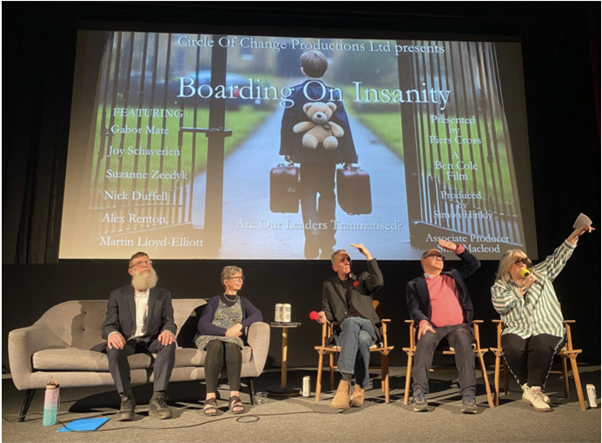 lead, moderated a Director’s Q&A at the London premiere of Boarding on Insanity at the Rio Cinema in Dalston. This documentary film, written by boarding school survivor and campaigner Piers Cross, examines how abandonment, institutionalization and a culture of abuse permanently affect the child’s psyche (Boarding School Syndrome), and the social and political impacts when a disproportionate number of those in power are deeply wounded ‘ex-boarders’. lead, moderated a Director’s Q&A at the London premiere of Boarding on Insanity at the Rio Cinema in Dalston. This documentary film, written by boarding school survivor and campaigner Piers Cross, examines how abandonment, institutionalization and a culture of abuse permanently affect the child’s psyche (Boarding School Syndrome), and the social and political impacts when a disproportionate number of those in power are deeply wounded ‘ex-boarders’.The sell-out event touched a nerve, with former boarders and their families queuing round the block for tickets. A screening with an academic panel hosted by the Building Future Communities Research Centre is in the pipeline for Summer 2025. |
| Justice for LB Sir Robert Buckland Review of Autism and Employment Embracing Autism and Neurodiversity in the Workplace Borough of Sanctuary Scheme |
|---|
| In the first two months of operation during the Summer of 2024, BFC held various large-scale events with citizen groups focusing on the priorities of social justice and inclusive practice. These were designed to be a catalyst for subsequent research and enterprise work coalescing around themes of interest to the BFC research centre. Building on LSBU’s Annual Disability Lecture, Justice for LB was our first event which included a relaxed inclusive conference and a visit to the West End to see the play Laughing Boy written by our Writer in Residence, Stephen Unwin. We considered ways in which we could contribute to the work of The Baroness Hollins Review of the 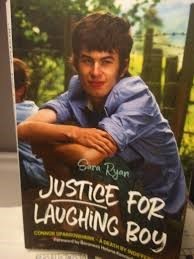 incarceration of autistic people with additional learning disabilities in long term assessment and treatment centres. Speakers included Stephen Unwin, Professor Sara Ryan who is the mother of Connor Sparrowhawk whose death inspired Stephen’s play, Professor Rosemarie Garland Thompson from the USA, Professor Eddie Chaplin from LSBU and Peter Cronin from The Foundation for People with Learning Disabilities. A group from CADS had the opportunity to meet with Baroness Hollins to discuss further work which builds on a body of research CADS has undertaken for NHS England and The John and Lorna Wing Foundation. We have since won additional funding to focus on transition to residential care of older autistic adults. incarceration of autistic people with additional learning disabilities in long term assessment and treatment centres. Speakers included Stephen Unwin, Professor Sara Ryan who is the mother of Connor Sparrowhawk whose death inspired Stephen’s play, Professor Rosemarie Garland Thompson from the USA, Professor Eddie Chaplin from LSBU and Peter Cronin from The Foundation for People with Learning Disabilities. A group from CADS had the opportunity to meet with Baroness Hollins to discuss further work which builds on a body of research CADS has undertaken for NHS England and The John and Lorna Wing Foundation. We have since won additional funding to focus on transition to residential care of older autistic adults.LSBU highlights teen's death in second Annual Disability Lecture |
| The second event focused on the Buckland Review of Autism Employment. Speakers from parliament were due to contribute, including Sir Robert Buckland and Barry Sheerman MP. (Barry is founder of the Westminster Autism Commission which has close links with CADS.) Because the general election was called, we had to redesign the conference which was still extraordinarily successful and included employers, representatives from charities and neurodivergent job seekers. The conference built on a body of research undertaken at LSBU, for funders including The Cabinet Office and Research Autism, around employment and disability, and laid foundations for the further development of our already established research-informed CPD offer. A follow-up event was subsequently organised for 26th September 2024, in collaboration with Microlink PLC, and attracted over 500 participants. Exploring the Buckland Autism Employment Review with Professor Nicola Martin |
Embracing Autism and Neurodiversity in the Workplace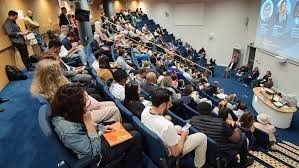 The Buckland Review distilled down to 19 action points, the operative word being action. As we know, the Disability Confident ethos is all about ‘a little less conversation, a little more action.’ For our third event we invited Sir Robert Buckland, Professor Nicola Martin from LSBU , and David Forbes-Nixon of DFN Foundation to share how their work supports neurodiverse and autistic people. We looked at the ‘why’ and the ‘how’ to be much more inclusive employers. David talked about the amazing work the foundation does with supported internships, and Nicola spoke about supporting at university and into work. |
The fourth event was around the Borough of Sanctuary scheme and involved 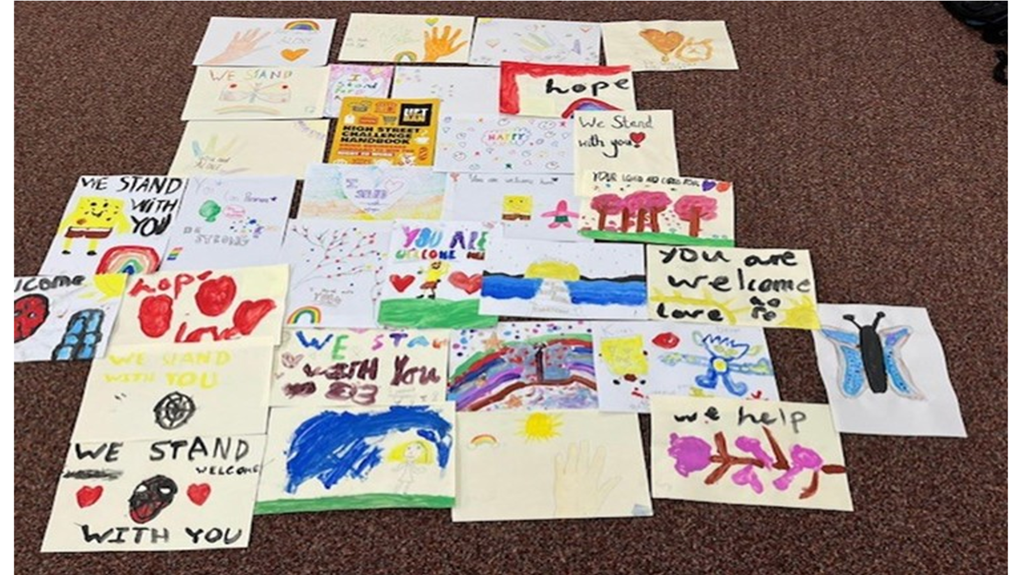 various local authority and community groups including Southwark Day Centre for Asylum Seekers with which we have close links. We were recently commissioned to evaluate the City of Sanctuary Schools of Sanctuary scheme and plan to build on this area of work. various local authority and community groups including Southwark Day Centre for Asylum Seekers with which we have close links. We were recently commissioned to evaluate the City of Sanctuary Schools of Sanctuary scheme and plan to build on this area of work. |
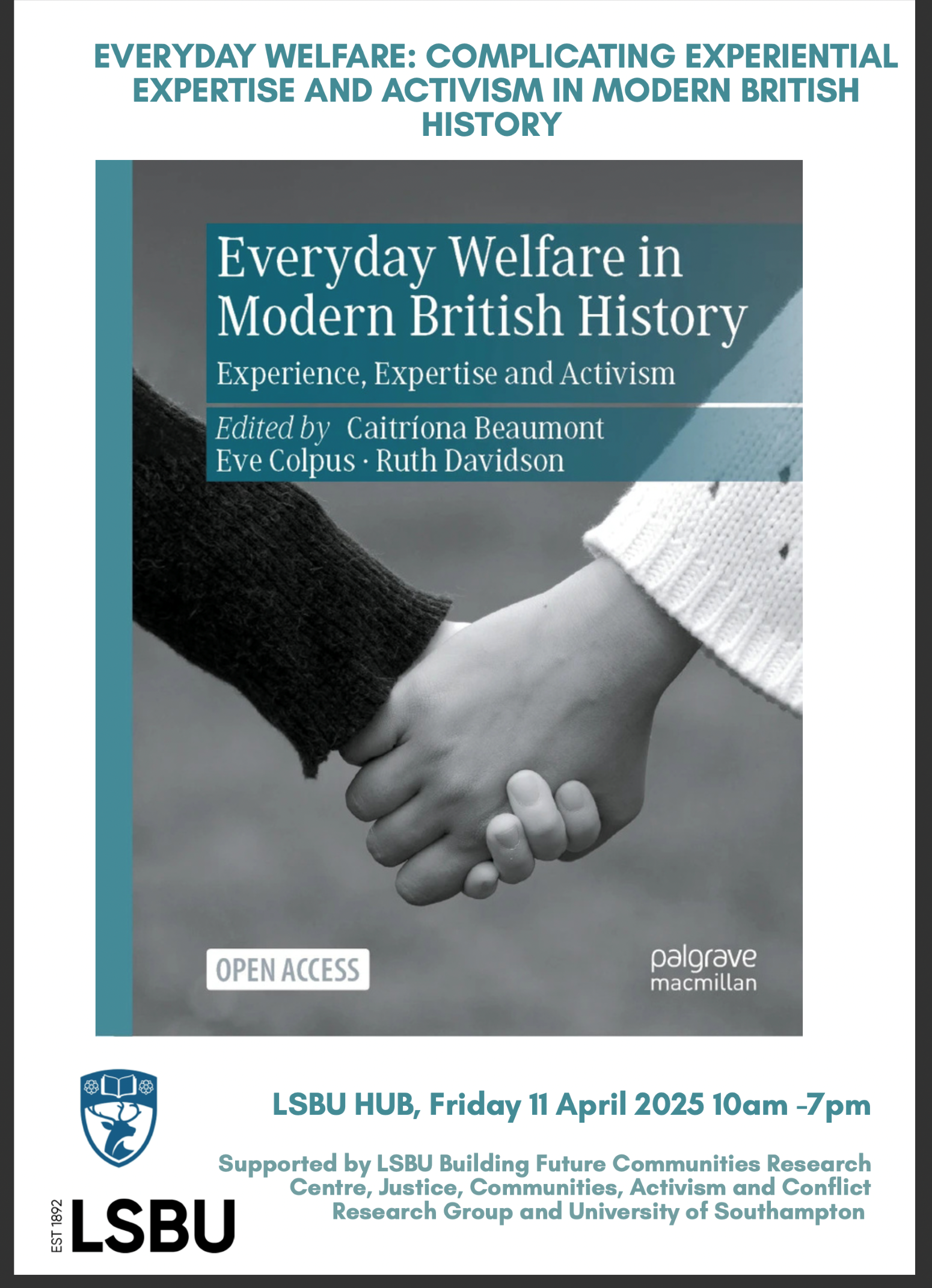 Activism and Conflict Research Group (JCAC), and the University of Southampton, celebrated the publication of a new open access edited collection,
Activism and Conflict Research Group (JCAC), and the University of Southampton, celebrated the publication of a new open access edited collection,  ts Third Annual Disability Lecture. John Harding, Head of the Accessibility & Disability Resource Centre, University of Cambridge, gave an inspiring lecture on: ‘From reasonable adjustments to inclusive practice: the undiscovered country? What is the future for university disability services?’ A recording of this lecture will be available here soon.
ts Third Annual Disability Lecture. John Harding, Head of the Accessibility & Disability Resource Centre, University of Cambridge, gave an inspiring lecture on: ‘From reasonable adjustments to inclusive practice: the undiscovered country? What is the future for university disability services?’ A recording of this lecture will be available here soon.